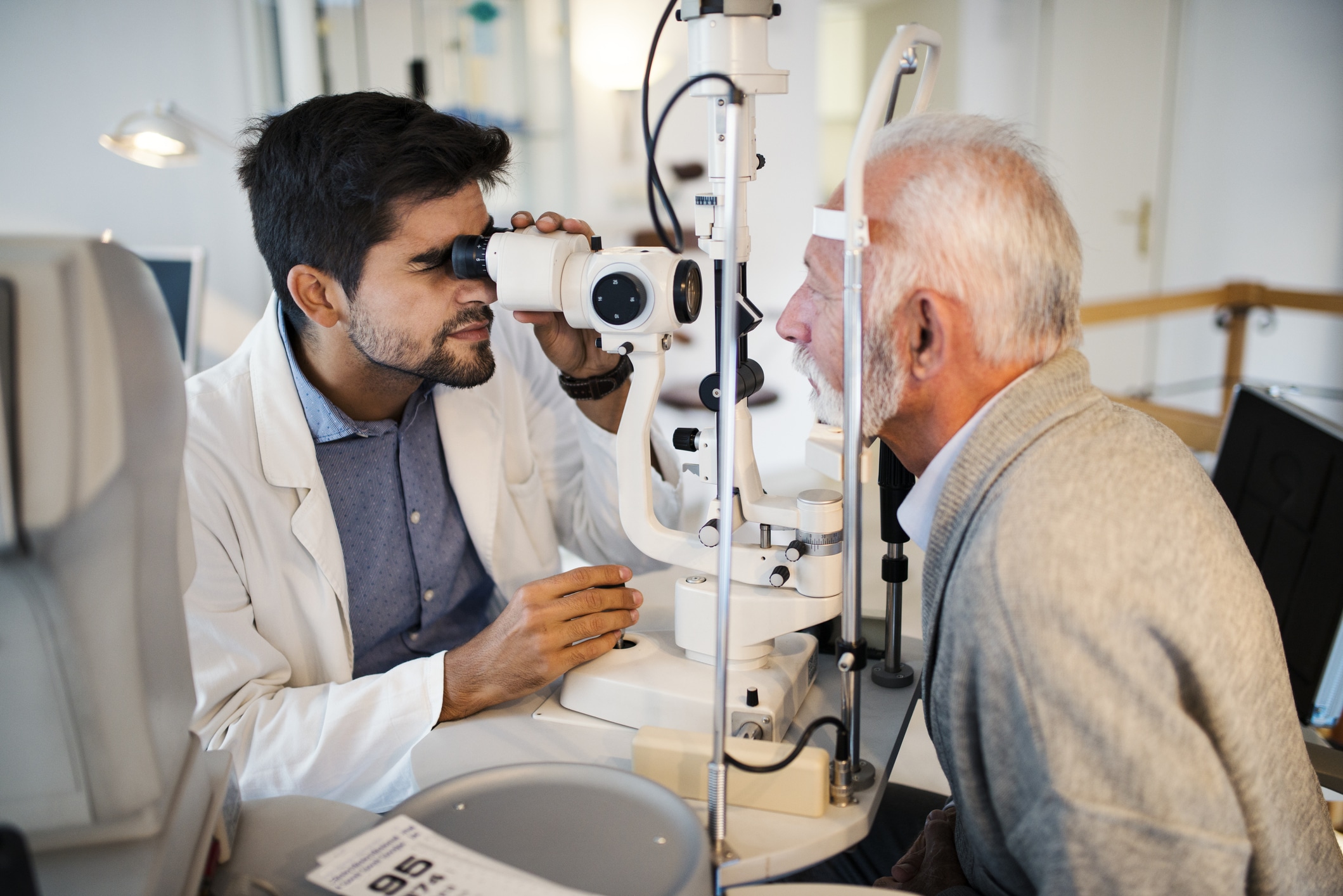
Glaucoma is the second leading cause of blindness worldwide, and the leading cause of blindness in people over 60 years old. It’s estimated that more than three million Americans are living with glaucoma, and half of them aren’t even aware that they have it. Getting regular eye exams can help doctors identify and treat the disease before it threatens your vision. While there is still no cure for glaucoma, catching the disease in its early stages can stop it from spreading and prevent any further vision loss (American Academy of Ophthalmology, 19).
Glaucoma refers to a group of diseases that damage your eye’s optic nerve and result in vision loss, and blindness in some cases. The two main types of glaucoma are known as closed-angle glaucoma and open-angle glaucoma, with open-angle glaucoma being the more common of the two. Open-angle glaucoma occurs when the eye doesn’t drain fluid through its drainage angle as well as it normally should, and fluid pressure inside of the eye gradually builds to a dangerous level, damaging the optic nerve. This type of glaucoma progresses over a long period of time without the person noticing vision loss until the disease is severely advanced. Open-angle glaucoma is hereditary, so it’s important to speak with your family members about their vision health to help you protect your own.
Closed-angle glaucoma occurs when the eye’s iris blocks the drainage angle. When the drainage angle gets completely blocked, eye pressure rises quickly, leading to acute attack. An acute attack is very painful and a serious emergency. If you experience an acute attack, get to a doctor right away or you could permanently lose vision in the affected eye.
Anyone can develop glaucoma, but certain groups have an increased risk for developing the disease. African Americans over the age of 40, people over the age of 60, those with a family history of glaucoma and people living with diabetes have a higher chance of developing the disease. Some people can also have optic nerves that are sensitive to normal eye fluid pressure, putting them at a higher risk for developing glaucoma.
Glaucoma is normally treated with eye drops, oral medicine or surgery. A doctor may also recommend a combination of these treatments to reduce pressure in the eye and prevent permanent vision loss.
Maintaining a healthy weight, controlling your blood pressure, being physically active and avoiding smoking can also help prevent glaucoma from developing, and can help those living with glaucoma avoid further vision loss.
Healthy, clear vision is a not something you want to take for granted. Visit our eye care page or call 502-587-4011 to schedule an eye exam today.









